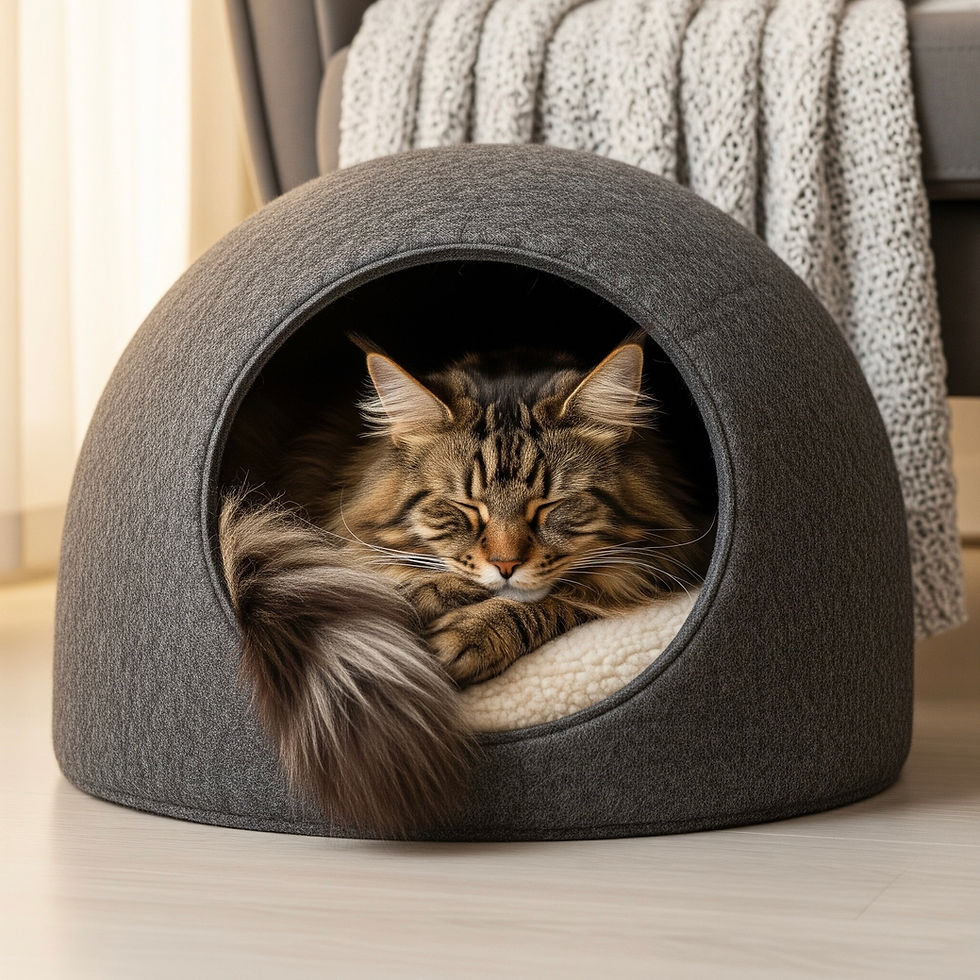Kitten Vaccinations: A Vital Shield for a Healthy Start
- palicocoons
- Sep 12, 2024
- 3 min read
Welcoming a new kitten into your home is a joyous occasion filled with purrs, play, and endless cuddles. But amidst the excitement, it's crucial to remember that your furry friend needs protection against various diseases that can threaten their health and well-being. Kitten vaccinations are the cornerstone of preventive care, providing essential immunity against common and potentially deadly feline illnesses. In this blog post, we'll delve into the world of kitten vaccinations, explaining their importance, the recommended schedule, and what to expect during your kitten's vet visits.
Why Vaccinations Matter: Building Immunity
Kittens are born with a temporary immunity passed on from their mother, but this protection wanes as they grow older. Vaccinations introduce a weakened or inactive form of a virus or bacteria into your kitten's system, stimulating their immune system to produce antibodies. These antibodies act as a defense mechanism, preparing the body to fight off future infections from the same disease.
The Essential Kitten Vaccination Schedule
While your veterinarian will provide personalized recommendations based on your kitten's lifestyle and risk factors, here's a general timeline for essential kitten vaccinations:
6-8 weeks: First FVRCP vaccination (against feline viral rhinotracheitis, calicivirus, and panleukopenia)
10-12 weeks: Second FVRCP vaccination (booster)
14-16 weeks: Third FVRCP vaccination (booster) and Rabies vaccination
1 year old: FVRCP and Rabies boosters
Understanding the Core Vaccines
FVRCP (Feline Viral Rhinotracheitis, Calicivirus, Panleukopenia): This combination vaccine protects against three highly contagious and potentially fatal viruses:
Feline Viral Rhinotracheitis (FVR): A respiratory disease causing sneezing, nasal discharge, and eye problems.
Feline Calicivirus (FCV): Another respiratory illness that can also cause oral ulcers and lameness.
Feline Panleukopenia (FPV): A severe gastrointestinal disease characterized by vomiting, diarrhea, and a weakened immune system.
Rabies: A deadly viral disease that affects the nervous system and can be transmitted to humans. Rabies vaccination is required by law in many areas.
Optional Vaccines: Considerations for Your Kitten
In addition to the core vaccines, your veterinarian might recommend other vaccinations based on your kitten's lifestyle and risk factors. These may include:
Feline Immunodeficiency Virus (FIV): Considered for kittens at high risk of exposure, such as those living with FIV-positive cats.

What to Expect During Vaccination Appointments
Consultation: Your veterinarian will discuss your kitten's lifestyle and risk factors to determine the most appropriate vaccination plan.
Physical Exam: Before administering any vaccines, the veterinarian will conduct a thorough physical examination to ensure your kitten is healthy enough to receive them.
Vaccine Administration: The vaccines are typically given as injections, usually under the skin.
Observation: Your kitten may be observed for a short period after vaccination to monitor for any adverse reactions, which are rare.
Follow-Up: Your veterinarian will schedule future appointments for booster shots and any additional recommended vaccinations.
Caring for Your Kitten After Vaccination
Mild Side Effects: Some kittens may experience mild side effects after vaccination, such as lethargy, decreased appetite, or slight fever. These typically resolve within a day or two.
Monitor for Reactions: While rare, serious allergic reactions can occur. Contact your veterinarian immediately if you notice any signs of difficulty breathing, swelling, hives, or vomiting.
Rest & Comfort: Provide your kitten with a quiet and comfortable space to rest after their vaccination.
Conclusion
Kitten vaccinations are a vital investment in your feline friend's health and longevity. By adhering to a recommended vaccination schedule and working closely with your veterinarian, you can provide your kitten with the best possible protection against preventable diseases.
Additional Resources
Maine Coon Kitten Health Guide: Nurturing Your Gentle Giant to a Majestic Adult
Remember: This blog post is for informational purposes only and should not be considered a substitute for professional veterinary advice. Always consult your veterinarian for personalized guidance on your kitten's vaccination needs.
Schedule your kitten's vaccination appointment today and give them the gift of a healthy and happy life! Download our free Vaccination Infogram!



A healthy start begins with essential vaccinations, protecting your kitten and setting the foundation for a happy life. While you prepare to welcome a new companion, explore our collection of Hairless Sphynx kittens link — affectionate, energetic, and uniquely beautiful. Each kitten is health-guaranteed and ready to fill your home with warmth, playfulness, and endless love. Find your perfect Sphynx friend today!